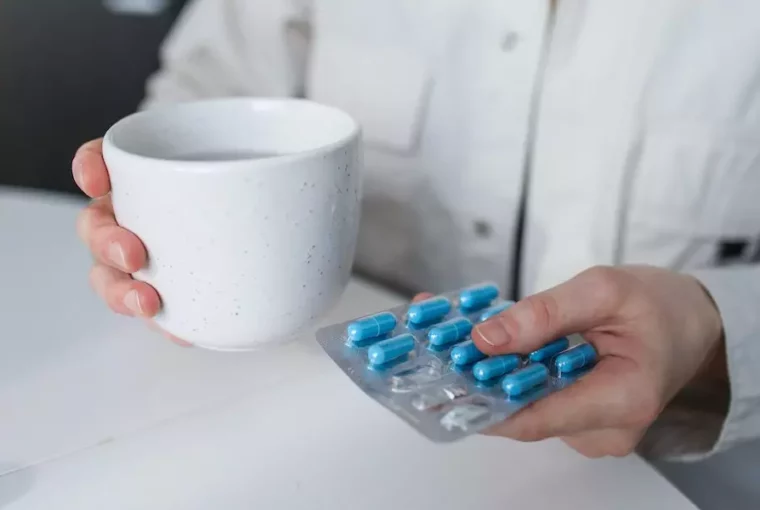You have your medication, therapy sessions lined up, and a list of supportive friends and family.
But despite your best intentions, you find yourself making common mistakes that could hinder your progress. Don’t worry; you’re not alone! Many patients make these mistakes, even in a city that never sleeps, with access to some of the best NYC suboxone doctors.
Mistakes To Avoid When Recovering From Opioid Addiction
Folks, welcome to the healing journey! You’ve taken the courageous step of confronting your opioid addiction straight on and are already on your way to a better future. But, before you charge ahead, it’s critical to understand the typical errors to prevent during the recovery process. Fortunately, you’re in excellent hands because you have access to some of the finest NYC suboxone doctors.
1. Failing to Follow Treatment Plan
One of the most common mistakes patients make when recovering from opioid addiction is failing to follow their treatment plan. Patients often skip their medication or therapy sessions, which can hinder their progress in recovery.
NYC suboxone doctors can help patients create a comprehensive treatment plan that includes medication, therapy, and support groups to ensure that they stay on track.
2. Not Addressing Co-occurring Disorders
Many patients with opioid addiction also have co-occurring disorders like anxiety or depression. If these disorders are not addressed, they can lead to a relapse. NYC suboxone doctors can help patients identify and treat co-occurring disorders, providing them with the support they need to maintain sobriety.
3. Surrounding Themselves With Negative Influences
Patients in recovery often make the mistake of surrounding themselves with negative influences, such as friends or family members who are still using opioids. This can be detrimental to their recovery and can lead to a relapse. NYC suboxone doctors can encourage patients to surround themselves with positive influences, such as support groups or friends who are also in recovery.
4. Not Practicing Self-Care
Self-care is essential to recovery, but many patients neglect it. Not practicing self-care can lead to feelings of depression and anxiety, which can trigger a relapse. NYC suboxone doctors can help patients develop healthy self-care habits like exercise, meditation, or healthy eating habits.
5. Engaging in Old Behaviors
Patients often make the mistake of not letting go, such as visiting the same places or seeing the same people that they used to use opioids with. This can trigger cravings and lead to a relapse. NYC suboxone doctors can help patients identify and avoid triggers, providing them with the necessary tools to maintain sobriety.
6. Giving Up Too Soon
Recovery from opioid addiction is a long and challenging journey, and many patients give up too soon. It is essential to remember that recovery is a process, and setbacks are a natural part. NYC suboxone doctors can provide patients with the support and encouragement they need to continue their recovery.
7. Not Seeking Help When Needed
Patients often make the mistake of not seeking help when needed. It is crucial to remember that recovery is not a solo journey, and it is okay to ask for help. NYC suboxone doctors can provide patients with the support they need, whether it be through medication, therapy, or support groups.
Importance Of Follow-Up Care For Opioid Addiction Recovery
Attention all recovering opioid addicts in the Big Apple! You’ve taken the first step towards a brighter future by seeking treatment for your addiction. But now that you’re on the road to recovery, it’s important not to take your foot off the gas pedal.
Not Attending Regular Check-ins
After completing initial treatment for opioid addiction, patients are typically asked to attend regular check-ins with their healthcare provider. Failing to attend regular check-ins can result in a lack of accountability and support, making it more challenging for patients to maintain their sobriety.
Regular check-ins also allow patients to discuss any challenges they may be facing in recovery. Without regular check-ins, patients may be more likely to feel isolated and alone in their recovery journey, which can lead to feelings of despair and potential relapse.
Failing to Continue Medication
Medication-assisted treatment is a common approach for opioid addiction recovery. Medications such as methadone, buprenorphine, and naltrexone can help reduce cravings and withdrawal symptoms, allowing patients to focus on their recovery. However, it is crucial to continue medication as prescribed to achieve long-term success.
Failing to continue medication can result in withdrawal symptoms and cravings, making it more difficult for patients to maintain sobriety. It is essential to work closely with a healthcare provider to determine the appropriate medication dosage and ensure that it is taken as prescribed. This is especially crucial when considering a medical detox program, where the careful management of medications plays a significant role in supporting individuals through the detoxification process. The medical detox program ensures that patients receive the necessary medications to alleviate withdrawal symptoms and minimize cravings, under the supervision and guidance of healthcare professionals.
Not Engaging in Ongoing Therapy
Ongoing therapy is essential to opioid addiction recovery. Therapy can help patients address the underlying causes of addiction, such as trauma or mental health conditions, and develop healthy coping mechanisms to prevent relapse.
Not engaging in ongoing therapy can result in a lack of support and guidance, making it more challenging for patients to maintain sobriety.
Therapy can also allow patients to address new challenges during recovery and work through them with a qualified healthcare provider.
Conclusion
Recovering from opioid addiction is no easy feat, but with the help of NYC suboxone doctors, you can avoid common pitfalls and stay on track toward a brighter future.
Remember to stay committed to your treatment plan, address co-occurring disorders, surround yourself with positive influences, practice self-care, and seek help when needed. You got this!




